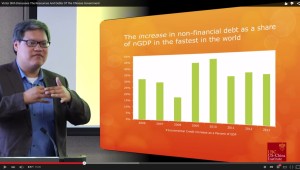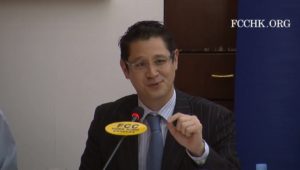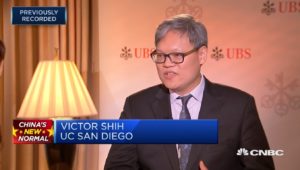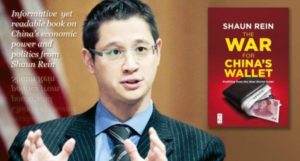Tencent's WeChat has been a winner in China in terms of users but might even beat its Western competitors in terms of functionality, writes WeChat analyst Matthew Brennan at the China Channel. The bigger question is will the tech giants outside China ever be able to catch up?
Matthew Brennan:
Matthew Brennan is a speaker at the China Speakers Bureau. Do you need him at your meeting or conference? Do get in touch or fill in our speakers' request form.
Are you looking for more experts at innovation at the China Speakers Bureau? Do check out this list.
Matthew Brennan:
Chinese users spend approximately one-third of all their time on mobile in WeChat. That presented a huge opportunity to build extra features and functionality on top of the basic messaging experience. And it was many of these features that hit the China market at exactly the right time, met the needs of local users perfectly, and helped propel WeChat to becoming the juggernaut that it is today.
Classic examples include Shake-shake, Friends Nearby, Walkie-Talkie, QR Codes, Official Accounts, Mini-Programs, and of course WeChat Pay.
It’s no coincidence that Tencent was the company to grasp this best, given their previous experience with flagship desktop messaging product QQ. Tencent CXO David Wallerstein had this to say: “When it came time to building value-added services around WeChat, it just came to us very naturally because we had just learned so much over a decade, probably like 12 years of learning by the time we got to WeChat… we also started thinking more about the economy, more about financial services, more about e-commerce, about how do you really transform a business or a hospital or a government using WeChat and I think we had so much experience with platform services and tying services together in a seamless way that when it came time to WeChat, it was like okay, good fresh platform, let’s get everything right this time.”
The growth rate of new active WeChat users has been steadily declining for many quarters and many — myself included — believe it has pretty much reached a ceiling. The future and focus of WeChat will not be about gaining more new users, it will be about embracing it’s stated vision to “Connect people to people, people to services, people to businesses, and people to objects.”
The digitalization of daily life continues at rapid pace in China through trends such as mobile payments, online-to-offline services, the sharing economy, smart retail and digital ID cards. WeChat acting as China’s great universal connector is at the very center of all of this and showing little sign of relinquishing its place at the forefront of Chinese innovation. The bigger question is will the tech giants outside China ever be able to catch up?More at the China Channel.
Matthew Brennan is a speaker at the China Speakers Bureau. Do you need him at your meeting or conference? Do get in touch or fill in our speakers' request form.
Are you looking for more experts at innovation at the China Speakers Bureau? Do check out this list.




























